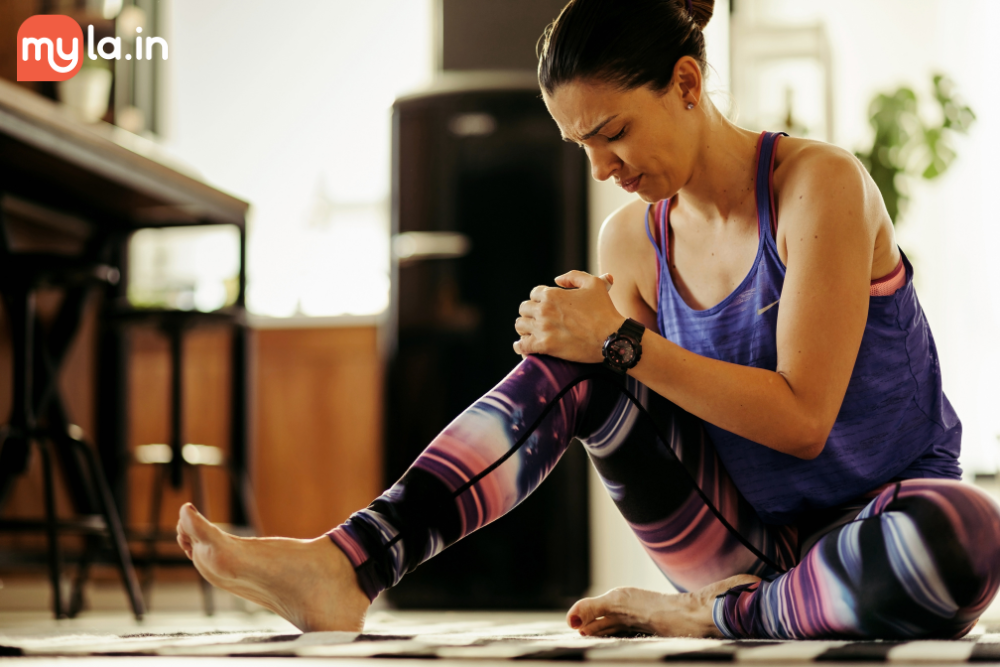Yoga is a holistic practice that combines physical postures, breath control, meditation, and ethical principles to promote overall well-being. You might think yoga is a foolproof practice. That there’s no way you can get hurt. Unfortunately, the opposite is true. While yoga offers numerous health benefits, improper practice can lead to injuries. Without a bit of proper care and prevention, yoga injuries can be quite common. You can find yourself dealing with discomfort or even serious injuries. It’s crucial to approach yoga with mindfulness, awareness, and proper technique to ensure a safe and enjoyable experience. In this article, we will explore essential tips for avoiding yoga injuries.
Expert Tips for Avoiding Yoga Injuries as a Beginner
Listen to Your Body

Yoga encourages self-awareness, and it’s essential to listen to your body during practice. Depending on your personality, your yoga instructor, and your fellow classmates, it can be easy to get a bit competitive. Pay attention to any discomfort, pain, or strain. If a pose feels painful, modify it, or skip it altogether. Pushing yourself too hard can lead to injuries, so honour your body’s limitations and gradually progress as your flexibility and strength improve.
Understand that some days may be better days than others. Your sleep, diet, and focus can all affect your performance. Instead of thinking “I did this pose last week,” or “Joe is rocking this pose, I need to do better,” listen to what your body is telling you. If it’s a day to push yourself, then great. If it’s a day to hold back, then hold back.
Choose the Right Class

One of the first steps in preventing yoga injuries is to choose the appropriate class based on your experience and fitness level. If you’re a beginner, opt for beginner-friendly classes where instructors provide detailed instructions on alignment and technique. As you progress, you can explore more advanced classes.
Choose a Skilled Yoga Instructor

Yoga is extraordinarily popular. There are classes in just about any community across the country. The vast growth of yoga means an increasing number of instructors. However, all instructors are not created equally. Some are quite skilled. Others, not so much.
The unskilled or questionable instructors can cause injuries by pushing students too far or by positioning your body in a pose that you’re not ready for. Pay attention to your instructor’s demeanour. How do they handle beginner students? Additionally, review their credentials. How long have they been teaching and where did they get their certification?
Go Easy and Warm-Up Properly

Everyone starts yoga at the same place, as a beginner. Allow yourself to be a beginner and ease into the practice. It can take some time to find the right instructor and yoga type for your needs and personality. Allow yourself time to learn and your body time to adapt.
Additionally, give your body time to warm up and cool down before class. Warming up is crucial before diving into more challenging yoga poses. Start with gentle stretches and basic movements to prepare your muscles, joints, and connective tissues for the practice ahead. A proper warm-up increases blood flow, flexibility, and reduces the risk of strains or sprains.
Focus on Alignment

Correct alignment is fundamental to preventing injuries in yoga. Each pose has a specific alignment, and deviating from it can strain muscles and joints. Attend classes with experienced yoga instructors who can guide you through proper alignment or use props to assist you in maintaining the correct form.
Gradual Progression

Yoga is a journey of self-discovery and improvement. Avoid the temptation to push yourself into advanced poses without proper preparation. Progress gradually, mastering foundational poses before attempting more challenging ones. This approach allows your body to adapt, reducing the risk of overuse injuries.
Use Props Wisely

Yoga props, such as blocks, straps, and bolsters, are excellent tools to assist in achieving proper alignment and provide support. Incorporate props into your practice as needed, especially if you are recovering from an injury or working on improving flexibility in certain areas.
Stay Hydrated

Hydration is crucial for overall health and plays a significant role in injury prevention. Dehydration can lead to muscle cramps and fatigue, increasing the risk of accidents during yoga practice. Ensure you are adequately hydrated before, during, and after your session.
Incorporate Cross-Training

Variety in physical activity is essential for a well-rounded fitness routine. Consider incorporating cross-training activities such as strength training, cardio exercises, or flexibility-focused activities to complement your yoga practice. This helps prevent muscle imbalances and reduces the risk of overuse injuries.
Yoga is a beautiful and transformative practice when approached with mindfulness and caution. By choosing the right class, listening to your body, focusing on alignment, and incorporating these tips into your routine, you can enjoy the physical and mental benefits of yoga while minimizing the risk of injuries. Remember, yoga is a personal journey, and a safe practice is key to a sustainable and lifelong commitment to this ancient art.
Finally, don’t try to go to a yoga class once a week or once a month. The more time you give your body to learn the movements and become flexible and strong, the better your classes will be. And most importantly you’ll reduce your risk of injury. Yoga is wonderful for your body, mind, and spirit. Take it easy on yourself and prevent injuries so you can enjoy your practice year-round.
